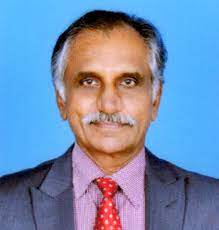Relations between Canada and India are in turmoil after Canadian Prime Minister Justin Trudeau made a disquieting allegation against India, but India has responded by calling Trudeau’s accusations ‘absurd and motivated’. What is your take on this?
At this particular time, it appears that Justin Trudeau, the Prime Minister of Canada, has credible information that the Indian government was somehow involved in the killing of a Canadian on Canadian soil.
The problem with this accusation that was made by the Prime Minister in a way without demonstrating concrete evidence of the Indian government’s involvement. This creates challenges for Canada in terms of being able to prove this disquieting accusation, but it also is a challenge for India and like-minded countries, as India was hoped to be a country that stresses a rule-of-law, transparency and the commitment to contributing to an international order based on rule-of-law. If the accusation proves to be supported by concrete evidence, it would raise serious questions about India as a like-minded state.
My understanding is that in the Canadian context, the media in particular one of the newspapers was going to release the information that one of the Five Eyes members provided intelligence to Justin Trudeau about the killing and India’s involvement.
I think that Prime Minister Trudeau announced this in public in the Prime Minister’s Parliament as a way to stem any further damaging accusations of soft or inexperienced on foreign policy.
India has long alleged that Ottawa is a safe haven for Sikh terrorists. The recently killed Sikh separatist is also a terrorist, as declared by India. Canada is responding to India simply from the perspective of freedom of speech, but it is a national security issue for India. Against this backdrop, does the future of Canada-India relations seem bleak? Your thoughts?
The future of Indo-Canadian relations for the mid to short to mid-term seem bleak. It is unlikely that a free trade agreement could be signed by the end of the year and the trade mission has been cancelled. and FTA negotiations have been postponed, and what we see in both countries is an escalation of retaliatory measures to push back against each other’s accusations.
This is problematic as both Canada and India have comparative advantages that do match each other. Canadian trade with India is a net positive. And of course, India has strong cultural, political and immigration related ties with Canada.
Going forward, I suspect that India will likely wait for a new prime minister to emerge in Canada. This is not an endorsement or a criticism of the current prime minister. Rather, a comment on how I think not only India but perhaps China as well views the current Canadian prime minister. For New Delhi and Beijing, Trudeau’s values-based foreign policy not nuanced enough in terms of understanding the region’s dynamics.
Without strong relations with India, Canada will face difficulty in terms of its realising its Canadian Indo Pacific strategy, a trade agreement to help selectively divided diversify away from China and to embed itself into the region through participating in mini-lateral cooperative units, whether it’s the Quad or otherwise.
Some argue that Canada’s hostile policy toward India will not help Western efforts to contain China’s hegemonic ambitions in Asia. From a geopolitical standpoint, how do you see the repercussions of this situation?
Canada is not a bulk word in terms of dealing with Chinese hegemonic ambitions in the Indo-Pacific. It is a small country of 40 million people that does not have the resources or the capabilities to provide substantial help to push back against Chinese assertive behavior within the region. But that being said, Canada’s diplomatic footprint, its trade relations within the region and its ability to be an energy critical mineral and agricultural superpower mean that it has some comparative advantages that if deployed in an appropriate manner would bring benefit to any kind of arrangement that tries to constrain China’s behaviour.
Given this situation, Trudeau’s administration struggles to balance its domestic political agenda and foreign policy objectives. As a foreign policy expert, what is your observation on this?
I think that domestic politics informs the Trudeau government’s foreign policy, in particular, its Canadian Indo-Pacific strategy. This, while admirable in many ways, is highly problematic. The focus of Canada’s Indo-Pacific strategy in particular many of the progressive aspects of the foreign foreign policy really don’t match the region’s needs, interests, or dynamics.
A value-laden approach to Indo-Pacific engagement is bound to fail.
An interest-based approach to Indo-Pacific engagement will likely create more partners, be more inclusive and help shape the region’s rules and norms. In a way that benefits Canada’s national interests.
Lastly, I think it is highly problematic that Canada was used to advocate for a separate homeland, especially if it was done through supporting violence. This is terrorism and is not acceptable and while Canada celebrates and protects freedom of speech which I support, I don’t support instigating violence abroad for the purpose of independence if this was indeed the case.
Stephen Nagy is a Professor at the Department of Politics and International Studies at the International Christian University (ICU) in Tokyo. He is an expert on the political, economic, and security dynamics in the region, especially regarding China and Japan and the broader region.
Concurrently, he is a senior research fellow of Macdonald-Laurier Institute (MLI) a leading Canadian think tank based in Ottawa and the Canadian Global Affairs Institute (CGAI) and a Visiting Fellow with the Japan Institute for International Affairs (JIIA).




